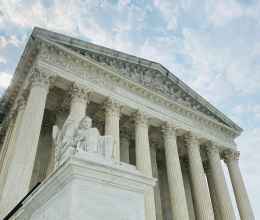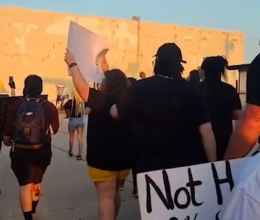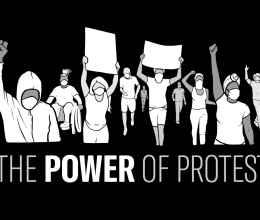
Way back in 2007, we filed a Freedom of Information Act (FOIA) request seeking information about how and when the government obtains cell phone location data without a warrant. Since then, we have learned that the practice of using cell phones as tracking devices is widespread, growing and conducted under various, conflicting legal standards, but the specifics of cell phone use in criminal investigations have largely stayed hidden (exceptions exist). This lack of transparency has stifled public debate on the practice, prevented it from being properly evaluated in the courts, and kept individuals who have been tracked from ever knowing about the surveillance.
Today, my colleague Art Spitzer is in the D.C. Circuit Court of Appeals, fighting for further transparency surrounding the government’s practice of obtaining cell phone location information without a warrant. We argue that the government must turn over the case names and docket numbers of the six public criminal prosecutions in which the government obtained the data without a probable cause warrant and the case resulted in an acquittal or a dismissal (the D.C. Circuit already ordered this information released as it relates to cases that resulted in convictions or public guilty pleas; more on this below). In these cases, an individual was tracked without a warrant during an investigation, then cleared of any wrong-doing but never told of the government’s surveillance. This information will shed further light on the practice—and further affirm the government’s responsibility to alert people of the violation.
After a four-year legal battle, the D.C. Circuit ordered the Department of Justice to release information on cases that resulted in a public guilty plea or a conviction for select US Attorney's Offices during a limited time period. The list that was released includes case names and docket numbers for 195 cases from eight federal court districts.
Last fall, we began to send letters to every attorney who had represented a defendant in one of the cases on the list that was released. We sent out over 600 letters across the country and the response was, unfortunately, exactly as we expected. For those who responded, the letter was, near-universally, the first that the defense attorney had learned of the warrantless cell phone location tracking in the case. The government very rarely alerted the defense to the tracking and very rarely introduced the information in the legal proceedings, giving the defense no opportunity to study the data or challenge the legality of the collection. Some of the attorneys reported Aha moments after receiving the letter, now understanding some part of the government’s case that had not quite added up. Some of these cases had been briefed on the suppression of other evidence, and the attorneys suggested that they would likely have filed suppression motions for this evidence as well. The lack of knowledge of this warrantless collection and inability to challenge the location tracking in open court threaten the Fourth Amendment’s warrant and probable cause requirements that are designed to safeguard our location data.







